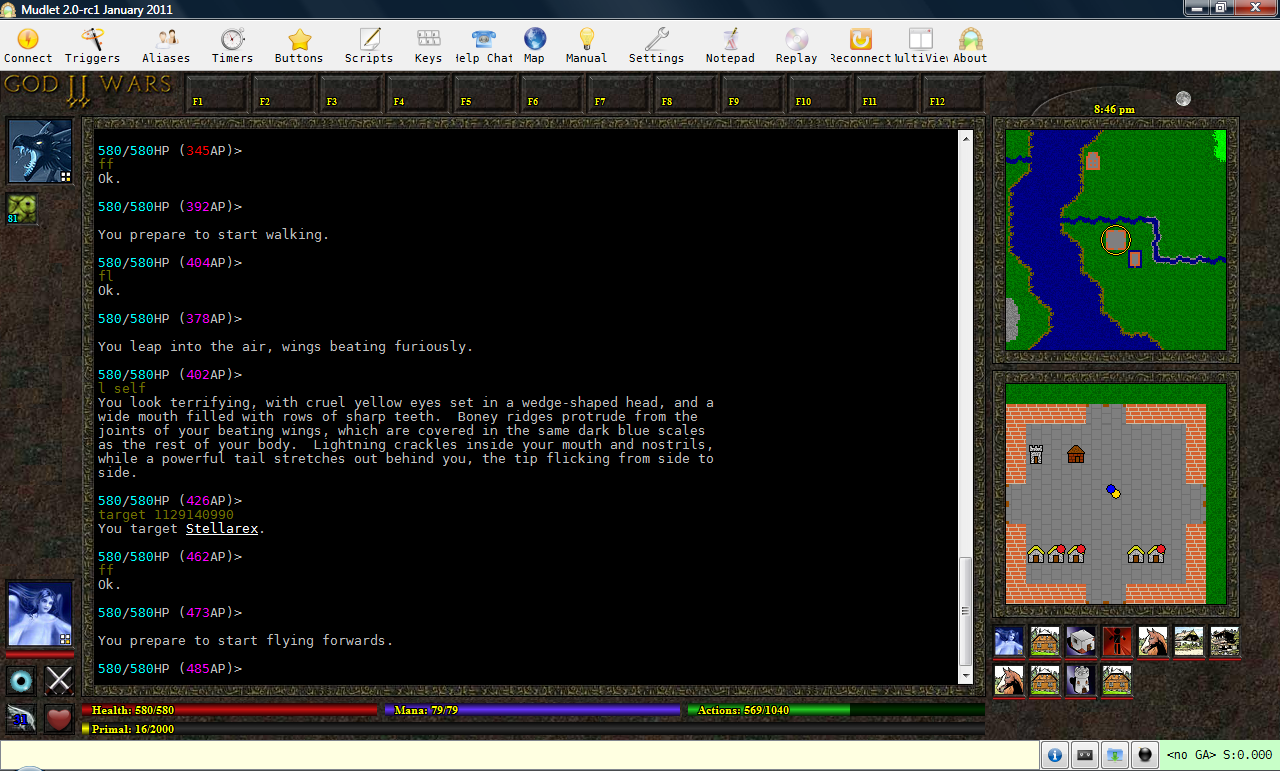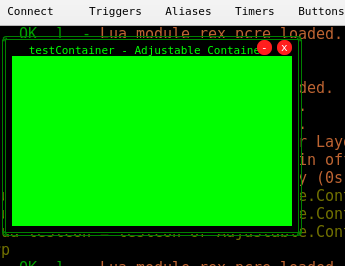

sendAll("stand", "wield shield", "say ha!", false) Use sendAll and do not echo sent command on the main window. sendAll("stand", "wield shield", "say ha!") Use sendAll instead of multiple send commands. echoTheValue optional boolean flag (default value is true) which determine if value should to use multiple send() commands one after another. You can use this to send some things at once instead of having for using event handlers and parsing its messages into Lua datastructures. A ATCP demo package is also available on the forums
#Mudlet variables free#
Feel free to experiment with this to achieve the desired results. register RoomExits as the event handler, make the script name be process_exits, and use this in the script: For example, if you'd like to listen to the RoomExits event and have it call the process_exits() function. name in the script you'd like to be called. You do that by setting the Script name: to the function should it call for you when your handler receives a message. Next, because scripts in Mudlet can have multiple functions, you need to tell Mudlet which function the event name you'd like your script to listen to into the Add User Defined Event Handler: field and press the + button While the concept of handlers for events is to be explained elsewhere in the manual, the quick rundown is this - place The ATCP handler names follow the same format as the atcp table - RoomNum, RoomExits, CharVitals and so on. If you'd like to trigger on ATCP messages, then you need to create scripts to attach handlers to the ATCP messages. removed - so it becomes CharVitals and RoomExits. Note that while the typical message comes in the format of Module.Submodule, ie Char.Vitals or Room.Exits, in Mudlet the dot is To find out the available messages available in the atcp table and the event names, raised for each ATCP message that arrives. Whenever new data arrives, the previous is overwritten. The latest ATCP data is stored in the atcp table. such that any it should work on others. This is primarily available on IRE-based MUDs, but Mudlet's implementation is generic enough Extending default libraries makes Babelfish happy. tripped up on number representation differences (. It should pop up in the Registered Event Handler box.- enforce uniform locale so scripts don't get
#Mudlet variables plus#
So, if you're writing a function that you want to fire every time you get new character vital data, like HP, balances, all that, you would write '' into the 'Add User Defined Event Handler' box, and click the plus button. In the box labelled 'Add User Defined Event Handler', you need to write the exact table name of the GMCP data that you would like to cause the event to fire. This function will be called whenever your event handler is called. I don't know why this is, it's just a thing I discovered back when I was learning Mudlet.

So if your function is called onVitalUpdate, your script needs to be called onVitalUpdate. It needs to contain a function and an event handler, and the script file needs to be named the same as the function. GMCP events are fairly straightforward - events in general are a bit trickier and I haven't messed around with any player-created ones, so I'll leave that for someone else.īasically, you make a script (click the Scripts button on your menu bar, then click Add Item). I like talking about this because it makes me feel useful.


 0 kommentar(er)
0 kommentar(er)
